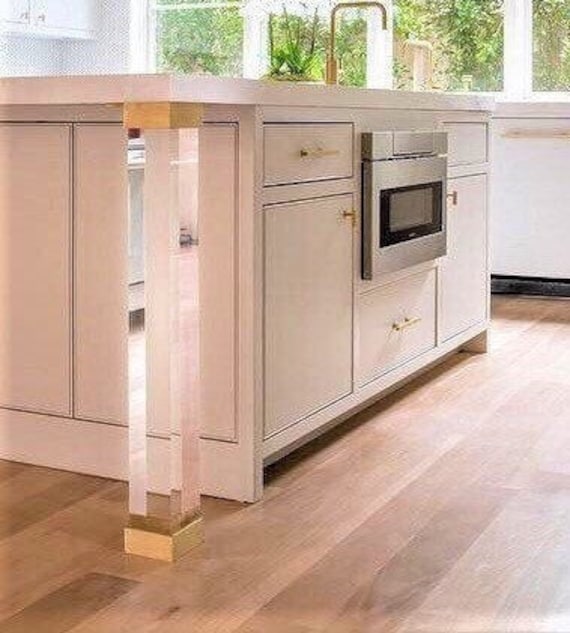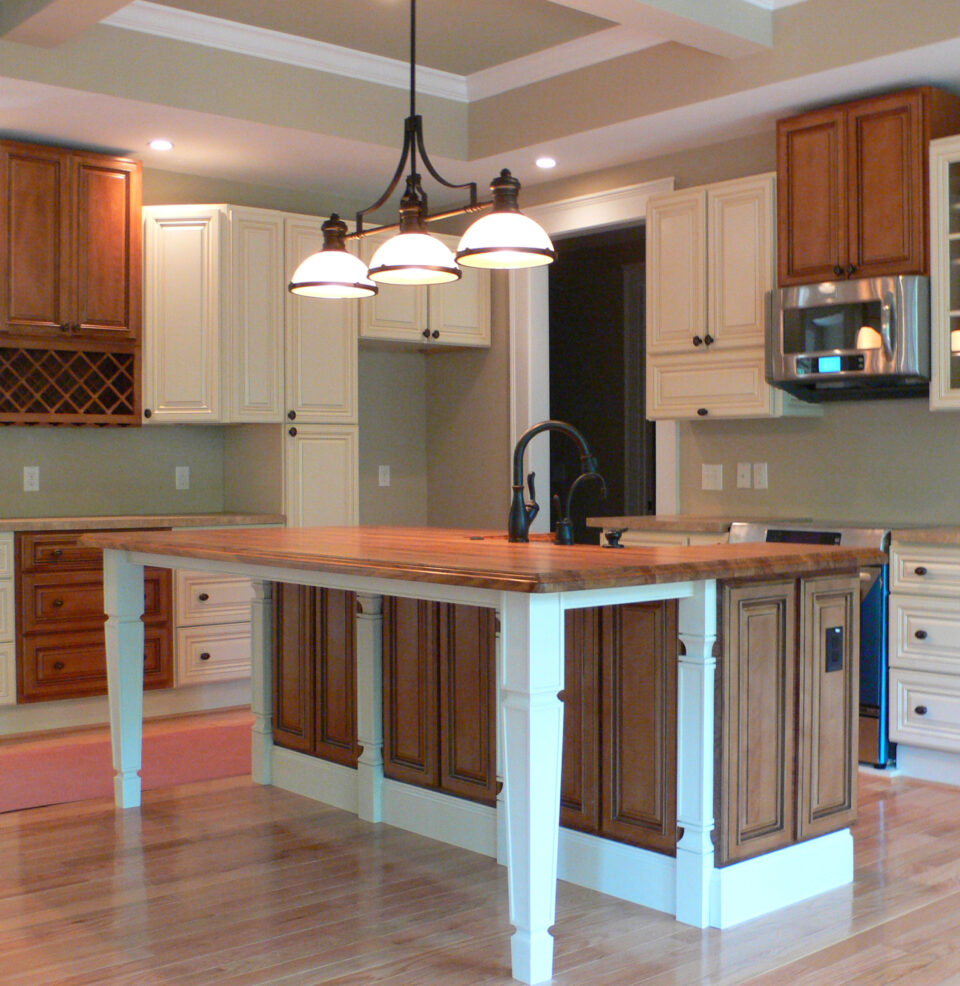A Comprehensive Guide to Choosing the Right Kitchen Island Leg
Leading Considerations When Selecting a Kitchen Island Leg for Modern Cooking Area Interiors
In the realm of modern-day kitchen area interiors, the choice of a cooking area island leg is essential, influencing both aesthetics and capability. Secret factors to consider consist of the selection of materials that balance with contemporary style, as well as the leg's security and assistance to guarantee enduring efficiency. Additionally, height and proportions must be thoughtfully evaluated to maintain a natural look. As these elements intertwine, they raise further questions concerning exactly how to achieve the excellent balance in between style and practicality, leaving one to contemplate the effects of each choice on the general kitchen area experience.
Material Choices
When it concerns selecting a kitchen island leg, material options play a critical duty in both aesthetics and capability. kitchen island leg. One of the most typical materials consist of wood, steel, and composite alternatives, each offering unique benefits and prospective disadvantages
Wood is preferred for its warmth and timeless charm, providing an ageless look that complements various kitchen designs. It is very versatile, enabling customization in terms of colors and finishes. Nevertheless, timber may need even more maintenance to avoid warping or damages from wetness.
Steel, on the other hand, brings a commercial and contemporary panache to kitchen islands. Stainless steel and wrought iron are popular options, understood for their resilience and resistance to wear. They can withstand the roughness of daily use however may lack the heat related to timber.
Composite products, such as engineered timber or synthetic blends, supply an equilibrium between cost, durability, and aesthetics. These alternatives are usually developed to resemble the look of all-natural materials while supplying resistance to scratches and spills.
Inevitably, the option of material must align with the general kitchen area style and planned use, making certain that the kitchen island leg is both practical and visually attractive.
Design And Style
The style and design of a cooking area island leg considerably add to the general visual of the space, complementing the selected material. When choosing the leg style, take into consideration the architectural style of the cooking area. For instance, sleek, minimalist legs constructed from stainless-steel or acrylic harmonize with contemporary layouts, while ornate, transformed timber legs boost standard or farmhouse appearances.
In addition, the coating of the leg can influence the visual impact; a polished chrome or matte black finish may evoke modern beauty, while distressed wood speaks to rustic appeal. The leg's form likewise plays a vital function-- right, angular kinds share an even more industrial feeling, whereas tapered or bent legs present a softer, more inviting appearance.
Including ornamental elements, such as makings or embellishments, can add character and personality to the kitchen area island, more enhancing its function as a prime focus. Ultimately, the chosen leg design need to not only line up with the general kitchen style yet additionally mirror the homeowner's individual preference, guaranteeing that the kitchen island becomes a practical and unified centerpiece within the modern-day kitchen inside.
Height and Percentages
Attaining the right height and proportions for a kitchen island leg is crucial for both functionality and appearances. Kitchen islands normally vary in elevation from 28 to 36 inches, depending on their intended use-- whether as a food preparation surface area, eating location, or work space. Standard kitchen counter elevation is approximately 36 inches, making it crucial that the legs you pick enhance this height to provide a smooth, incorporated appearance.
Percentages additionally play a vital role in the aesthetic equilibrium of the cooking area. The dimension and weight of the leg should agree with the overall design of the island - kitchen island leg. A slim leg might be suitable for a contemporary or minimalistic island, while an extra substantial leg may be required for rustic or standard layouts. Furthermore, consider the spacing in between the legs; appropriate distance makes sure convenience and ease of activity around the island.
When picking the height and percentages of the kitchen island leg, bear in mind the overall design theme of your kitchen. This interest to detail not just improves the functionality of the room yet also contributes to a natural and aesthetically attractive interior decoration.
Stability and Support
Consistently making sure security and assistance in kitchen island legs is vital for both security and functionality. A sound cooking area island must stand up to everyday usage, consisting of weight from home appliances, cooking, and social events. The selection of legs need to prioritize durable products and styles that can provide adequate support.
When evaluating security, consider the leg's material-- hardwood, light weight view website aluminum, or steel commonly offer exceptional stamina contrasted to lighter options. Furthermore, the style should feature a broad base to disperse weight evenly and reduce the threat of wobbling or tipping. For circumstances, legs designed with an A-frame or cross-bracing can significantly boost stability.

Including these factors to consider will not just enhance the general safety and security of the cooking area area however likewise enhance the long life and capability of the kitchen island, making it a useful centerpiece in contemporary kitchen area interiors.
Ending Up Touches
When it concerns finishing a kitchen island, thoughtful finishing touches can significantly boost both its visual allure and functionality. Picking the right leg style is critical, yet matching it with ideal information can transform the whole space. Think about adding ornamental aspects such as toe kicks or baseboards that match the kitchen cabinetry or flooring to develop a seamless appearance.

Lastly, the selection you can try this out of finishes plays a critical duty in linking the design with each other. Whether going with a matte, glossy, or textured surface, guarantee that it aligns with the overall motif of your cooking area. A natural color combination and product choice will elevate the kitchen island, making it an exciting centerpiece. By taking notice of these ending up touches, home owners can their explanation produce a kitchen island that is both stunning and useful, satisfying their lifestyle and layout preferences.
Verdict

In the realm of modern kitchen area interiors, the option of a kitchen area island leg is crucial, affecting both aesthetics and performance.The style and design of a kitchen area island leg substantially add to the general visual of the space, enhancing the picked product.Achieving the right height and proportions for a kitchen island leg is crucial for both capability and visual appeals.Regularly guaranteeing security and assistance in kitchen area island legs is vital for both safety and security and capability.In summary, selecting a cooking area island leg for contemporary interiors calls for careful factor to consider of material choices, design style, elevation, percentages, and security.